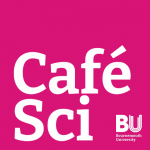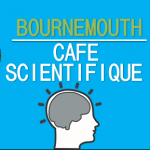Few weeks after Café Scientific (details here: http://blogs.bournemouth.ac.uk/research/?p=64189), I received an email from Devon Biddle and Sacha Gardener regarding the opportunity to be interviewed on the importance of public engagement activities and how my projects had benefited from them, not only during the recruiting process but also in expanding my research horizon and raising awareness on what I am doing (details here: http://blogs.bournemouth.ac.uk/research/?p=53295 )
Therefore, in just a couple of days, thanks to the staff of the Orthopedic Research Institute who provided the location, we started shooting, and here is part of the interview:
I would like to thank Davon, Sacha and all the BU staff for this interview, it was great, and I really hope that helps to have more people involved in public engagement activities.
Following the full script of the interview.
- Could you tell us a little bit of your self
My name is Francesco Ferraro, and I am a PhD Student here at Bournemouth University. Currently, I am working on a project which aims to understand the effects of inspiratory muscles training on balance and functional mobility for healthy older adults. The goal is to develop an innovative and effective training for falls prevention.
Before arriving here at BU, I obtained a Bachelor Degree in sports science from University of Rome Foro Italico while in the meantime I was working as a football coach and after I moved to Naples for complete my Master Degree in sports science prevention and wellness. There I worked on motion analysis in young adults, while in the meantime I was a trainer of the Italian Federation of Weightlifting.
- Could you tell us your favourite public engagement opportunity at BU?
It is hard to tell, I have enjoyed all the events in which I took part including Pint of Science, Café Scientific, The Festival of Learning, lecturing at University of Third Age and others.I gained something from each of them, and I gave something at each of them. But if I have to pick one, and only one I would say the Festival of Learning. Among all the events FOL is the one who gives you the opportunity to meet all kind of people.
You have the opportunity to explain your research to a very young audience, as well as people with excellent knowledge in your field, while surrounded by members of the BU Staff, BU students and colleagues that are there to help you and motived you.
- Why do you find public engagement a good asset to both your research and the community?
My study aims to understand the effect of inspiratory muscle training on balance and functional mobility. My final purpose is to develop a strategy to prevent falls accidents in people over 65.
Therefore it is a research for the community as any other research, especially in health and social science, is done for the people. Hence what would be the point to work for the community and do not explain to them what you are doing? As researchers we have the opportunity to share with others much more than a picture on Twitter, or Instagram, we have the opportunity to share knowledge, ideas and instead of likes, we will have more questions, more curiosity and the chance to give to the audience our ideas.
- At Café Scientifique, the public was really engaging in the fact your research was trying to better the wellbeing of the older generation. Why do you think people are so engaged in your research?
At Café Scientifique I was able to give to them my idea. Instead of explaining right away what my research does I told them the idea behind it and why is important to research on it. The reason why we had a great respond must be sought in my past years of work in the public engagement.
Any research is fascinating in is way, but is crucial to share it with others, not only peers and experts but also with the people for which the research is done.
- You use your public engagement to advertise the need for participants in your current research, is this an effective way of getting the participants you need?
Yes, it is. But it is not the reason why I do public engagement. I have been introduced to public engagement by my supervisors: Alison McConnell, James Gavin and Thomas Wainwright with the aim to share what learned and discuss it with others.
- If you were to advice new researchers about public engagement, what would you say to them?
Do it if you want to do it.
Public engagement is not easy especially if you do it because you “have to”. Do it if you want to share your research if you want to challenge yourself, if you want to meet the community then you will make a great event. You must have the right motivation if you do it just to “hunting” participants it won’t be neither correct or fun, and people will understand, with the result that you and your research will lose trust.
- What do you gain most from public engagement?
Motivation – to work more for the community, to help people to learn and understand what we are doing here at the BU and how it helps their wellbeing.
Confidence – have the opportunity to talk to 50, 100 or even 200 people at each event, has grown my confidence inside and outside the University.
Knowledge – I do believe that everyone has a story to tell and you can learn a lot from it. I am always surprised at the questions that I receive.
People curiosity drives my curiosity as well and helps me to think and re-think at my research.
- What are you going to do next?
I do have a couple of projects going on, but I will take part in the next Festival of Learning (third year in a row), and I will see what other opportunities the public engagement team will give to us.
Thank you for reading.
Francesco.
 Public Engagement Opportunity: Share your research with the public at Café Scientifique
Public Engagement Opportunity: Share your research with the public at Café Scientifique Public Engagement Opportunity: We’re looking for speakers for Café Scientifique 2019
Public Engagement Opportunity: We’re looking for speakers for Café Scientifique 2019 Public Engagement Online Training Session with COMMunity – Monday 22 May 4-5pm
Public Engagement Online Training Session with COMMunity – Monday 22 May 4-5pm










 Dr. Ashraf cited on ‘Modest Fashion’ in The Guardian
Dr. Ashraf cited on ‘Modest Fashion’ in The Guardian NIHR-funded research launches website
NIHR-funded research launches website Academics write for newspaper in Nepal
Academics write for newspaper in Nepal New paper published on disability in women & girls
New paper published on disability in women & girls Global Consortium for Public Health Research 2025
Global Consortium for Public Health Research 2025 MSCA Postdoctoral Fellowships 2025 Call
MSCA Postdoctoral Fellowships 2025 Call ERC Advanced Grant 2025 Webinar
ERC Advanced Grant 2025 Webinar Horizon Europe Work Programme 2025 Published
Horizon Europe Work Programme 2025 Published Horizon Europe 2025 Work Programme pre-Published
Horizon Europe 2025 Work Programme pre-Published Update on UKRO services
Update on UKRO services European research project exploring use of ‘virtual twins’ to better manage metabolic associated fatty liver disease
European research project exploring use of ‘virtual twins’ to better manage metabolic associated fatty liver disease